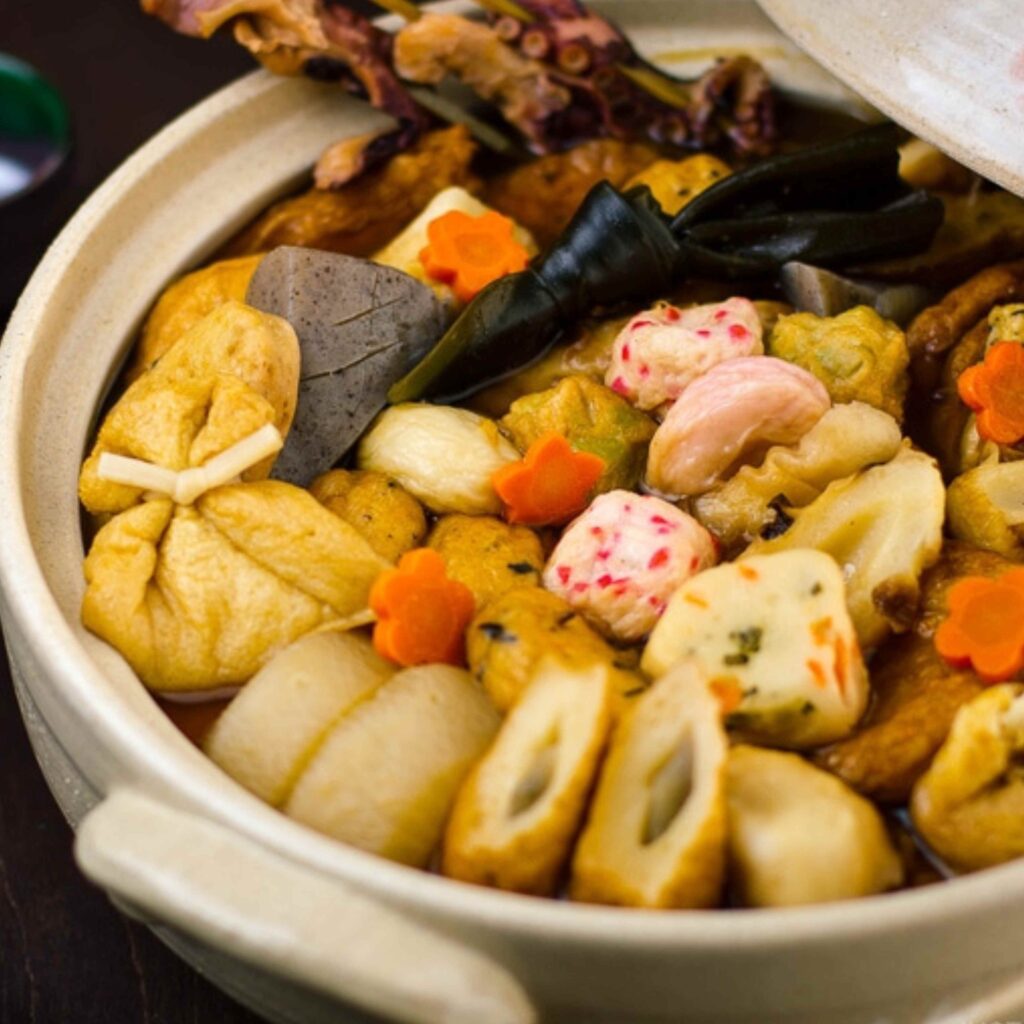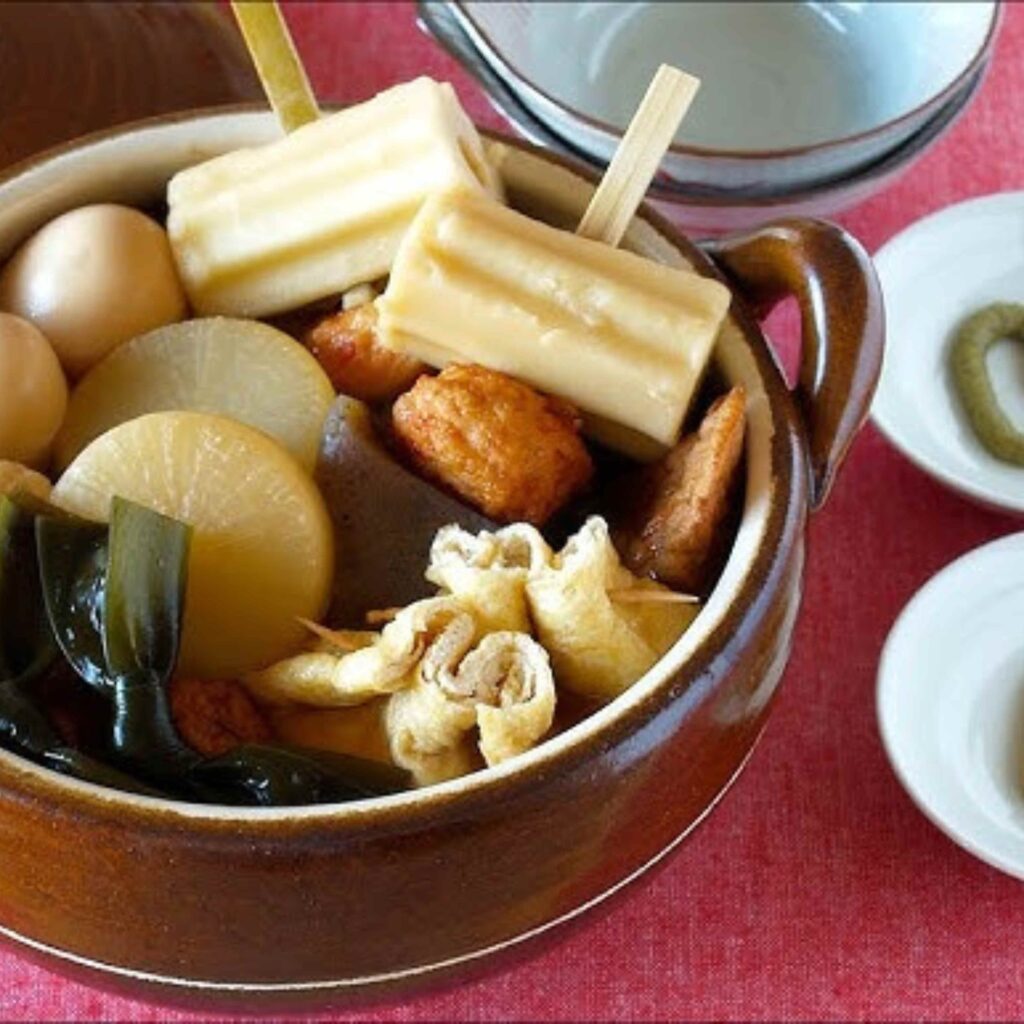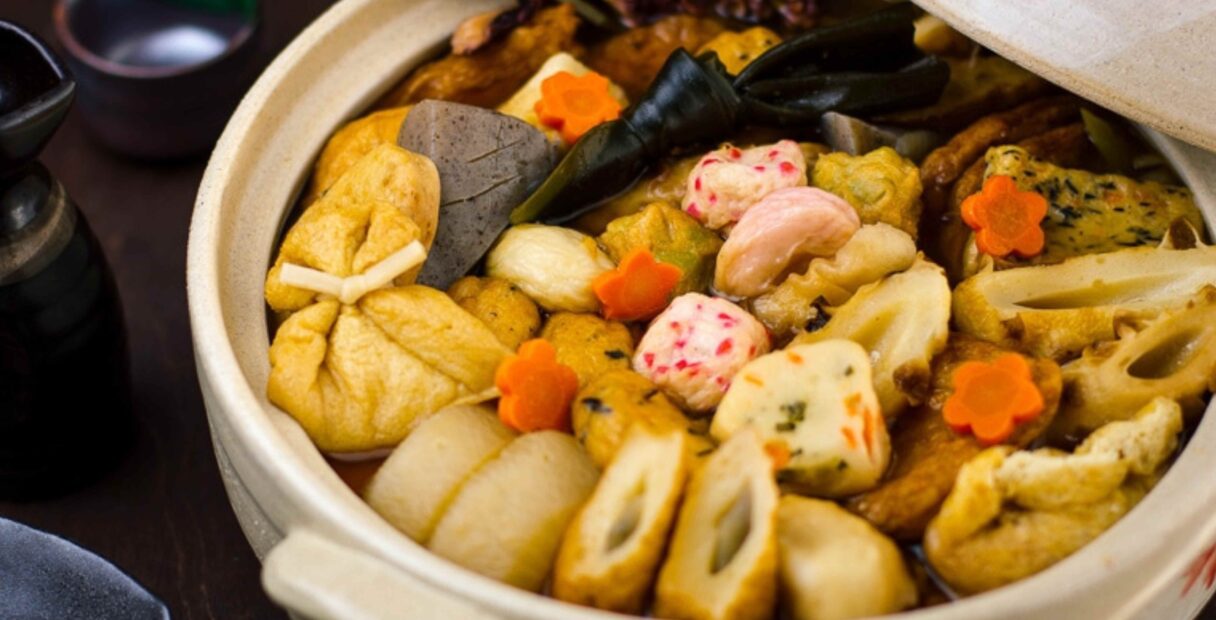

Oden: Japan’s Comforting One-Pot Wonder
Introduction
Oden, a comforting and beloved Japanese dish, beckons you to savor the flavors of Japan’s rich culinary heritage. This iconic one-pot meal, featuring various ingredients simmered in a savory broth, has a history as heartwarming as its ingredients. In this article, we embark on a journey to explore the intriguing history and cultural significance of Oden, a culinary masterpiece celebrated for its simplicity and comforting appeal.
Japanese Roots
A Dish Rooted in Simplicity
Oden has its origins in Japan, where it emerged as a convenient and satisfying street food during the Edo period (1603-1868). The name “Oden” is believed to have originated from the Japanese word “odoro,” meaning “to simmer” or “to boil.” This reflects the dish’s fundamental concept of simmering various ingredients in a flavorful broth.
Mediterranean Influence
A Taste of Japanese Comfort
Oden embodies the essence of Japanese cuisine, known for its emphasis on fresh ingredients and meticulous preparation. The dish typically consists of a simmering pot of ingredients such as daikon radish, boiled eggs, konnyaku (a yam cake), fish cakes, and various types of tofu. These ingredients are slowly simmered in a soy-based broth until they soak up the flavors, resulting in a comforting and soul-warming meal.
Cultural Significance
A Dish of Nourishment and Tradition
Oden is more than just a meal; it is a symbol of Japanese culinary comfort and tradition. It is often enjoyed during the colder months, where its warmth and heartiness provide solace from the chill. Oden is also a favorite during festivals and cultural events, where street vendors and restaurants offer their unique variations of this beloved dish.
Conclusion
In conclusion, the history of Oden is a captivating journey through the culinary traditions of Japan. From its humble origins as a street food during the Edo period to its status as a beloved and comforting Japanese specialty, Oden continues to captivate with its rich history and cultural significance. Its journey from the bustling streets of historical Japan to dining tables around the world showcases the timeless allure of this simple yet deeply satisfying Japanese classic.
For those eager to explore more about Oden and its regional variations, there are dedicated culinary resources and studies of Japanese cuisine that offer deeper insights into this cherished culinary masterpiece.
- Serves: 4 People
- Prep Time: 15 minutes
- Cooking: 45 minutes
- Difficulties: medium
Ingredients
For Cooking
- Assorted oden ingredients (eggs, daikon radish, konnyaku, fish cakes, etc.)
- 6 cups dashi broth
- 1/4 cup soy sauce
- 2 tablespoons mirin
- Salt, to taste
For Dressing
Nutritional Information
-
Calories:
150 -
Total Fat:
3g -
Saturated Fat:
0.5g -
Cholesterol:
60mg -
Sodium
: 800mg -
Total Carbohydrates
: 25g -
Dietary Fiber:
2g -
Sugars:
5g -
Protein
: 8g
Procedure
Conclusion: Oden’s gentle simmering and delightful combination of ingredients make it a favorite among Japanese comfort foods. From the classic recipe to inventive variations, you now have the tools to explore the world of oden and create a hot pot that warms both your body and soul. Enjoy the cozy flavors of this beloved dish!
-
Mark As Complete
Peel and cut the daikon radish into thick rounds.
-
Mark As Complete
Add the daikon and dashi broth to a pot and bring to a boil. Simmer until the daikon is tender.
-
Mark As Complete
Add soy sauce, mirin, and a pinch of salt to the broth.
-
Mark As Complete
Add the remaining oden ingredients and simmer until heated through.
-
Mark As Complete
Serve the oden ingredients with a bowl of broth on the side.
Dawood Ali Mian
Chef Dawood brings a wealth of experience and a diverse culinary background to our kitchen. His culinary training spans the globe, from classic French techniques to contemporary fusion cuisine. Drawing inspiration from both traditional and modern culinary traditions, Chef Dawood’s creations are a harmonious blend of flavors and textures that tantalize the palate.
You also might like
No recipe were found.




